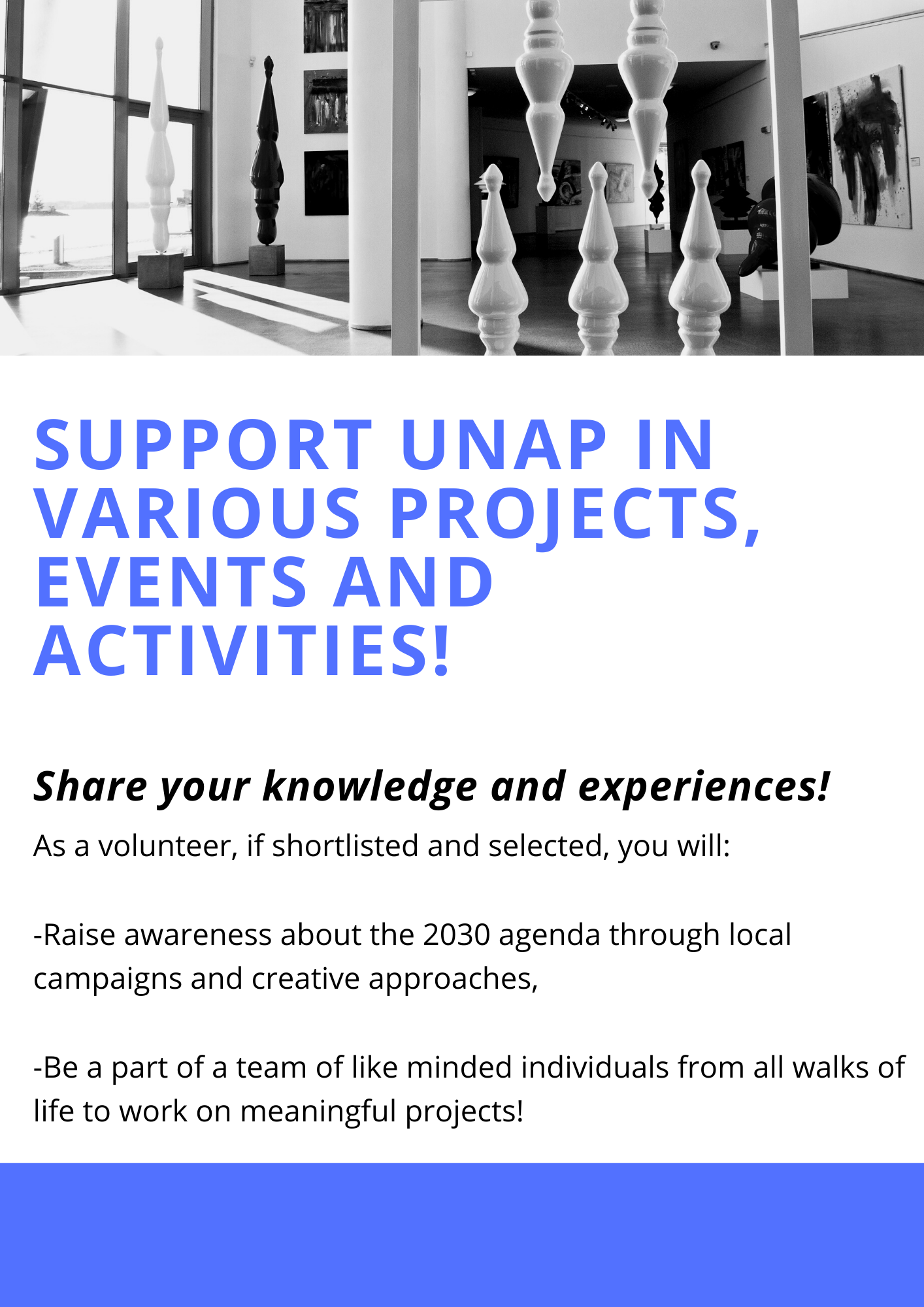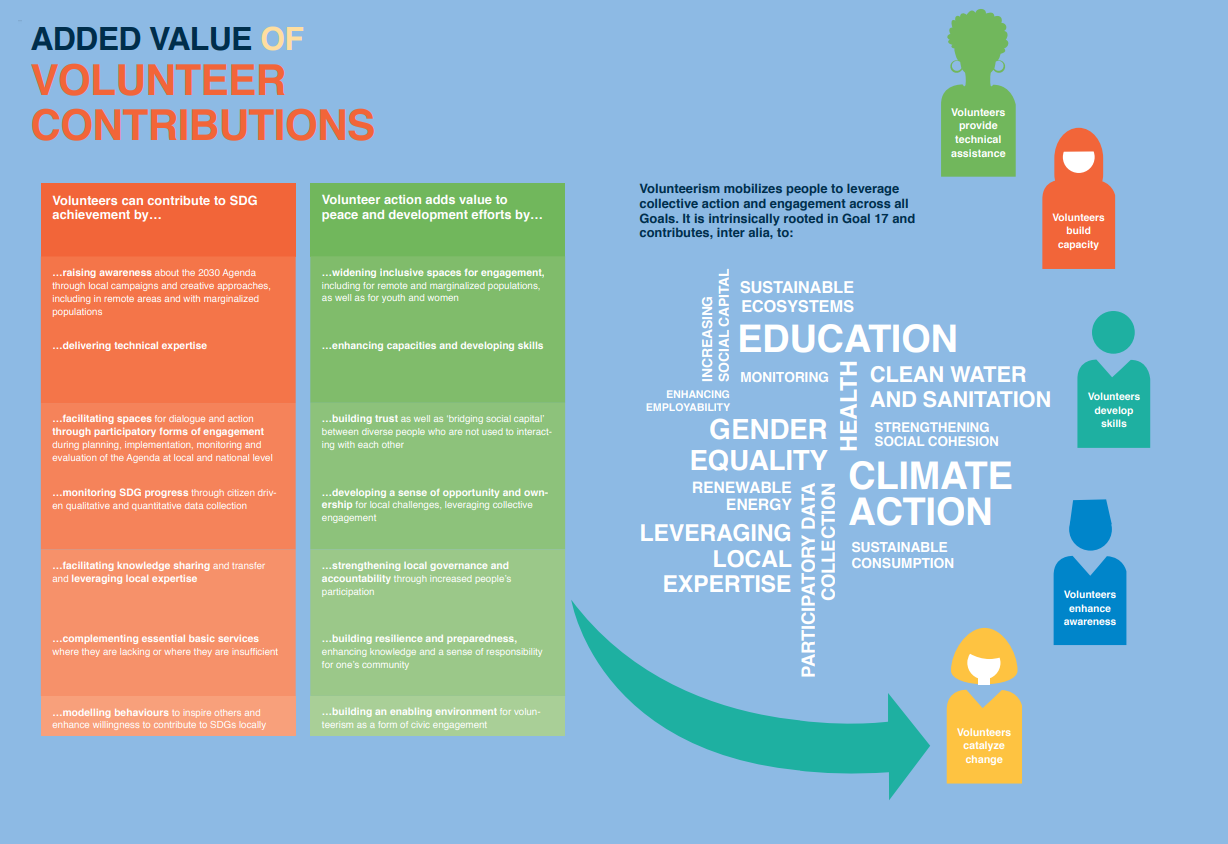The UN Secretary-General’s Synthesis report on the post-2015 sustainable development agenda (A/69/700) recognizes volunteering as a “powerful and cross-cutting means of implementation” for the SDGs. It highlights the role of volunteerism in expanding and mobilizing constituencies, engaging people in planning processes and localizing the agenda by providing new spaces of interaction between governments and people for concrete and scalable action.
By mobilizing capacities and extending the reach of action, volunteers can facilitate and support people’s engagement in planning, implementing and monitoring the SDGs, bridging social capital and strengthening social cohesion. They can:
- provide technical support and enhance capacity in all thematic goal areas, such as for example sustainable livelihoods, health, education, employment, environment, gender, or youth;
- facilitate new spaces for dialogue and action; reach out to people, including those marginalized or difficult to reach; bring people’s voices and knowledge into collective actions – to help leaving no one behind. This is crucial to build ownership and localize the SDGs;
- raise awareness or champion changes and inspire others, to facilitate durable changes in mindsets and behaviors;
- help measuring progress on SDG implementation through collecting data, providing expertise and supporting participatory forms of planning and monitoring



